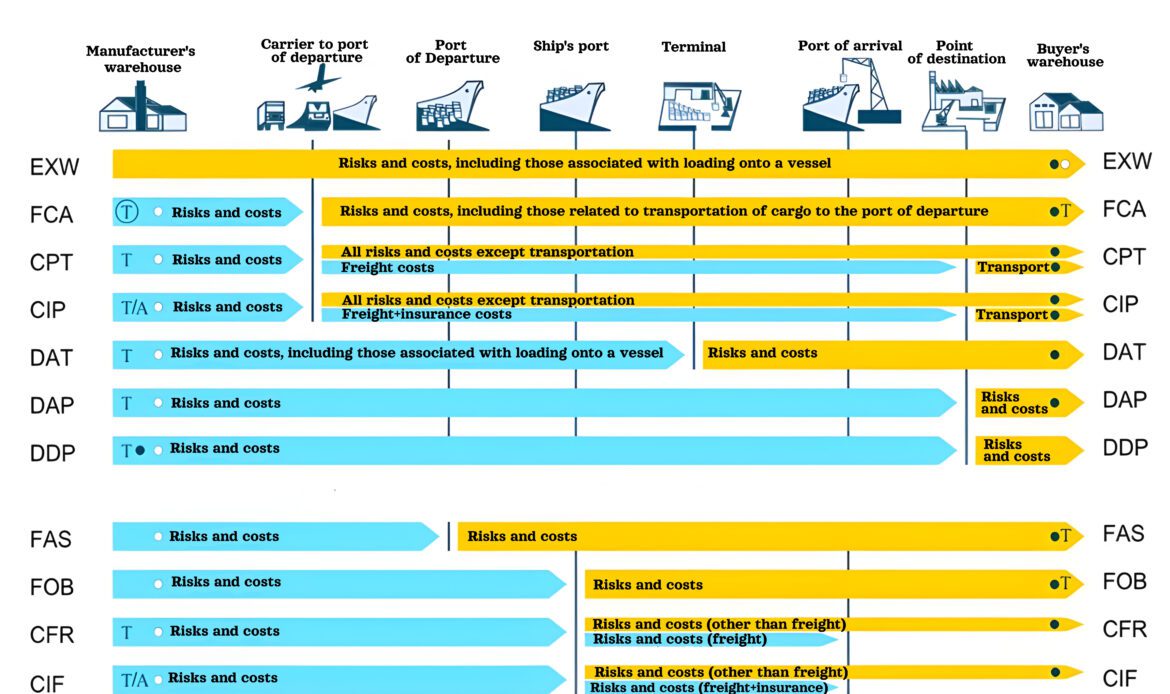


For more information, contact us and our experts will be sure to answer any questions you may have.
Delivering goods from one country to another in a commercial transaction can be a risky endeavor. The parties entering into a contract are often unaware of the differences in trade practices in the respective countries. This diversity in interpretation can lead to misunderstandings and disagreements involving loss of time and money. If goods are lost or damaged in the course of delivery, if one of the parties has not fully or partially fulfilled its obligations to the other party, if… There may be many such “ifs”, and all of them can complicate the relationship between partners and even lead to a situation where arbitration is inevitable.
To simplify foreign economic activity, as well as to unify transactions, the International Chamber of Commerce (ICC) back in 1936 issued international rules for the interpretation of trade terms, known as “INCOTERMS 1936”
Now “INCOTERMS” is a collection of rules for the interpretation of international trade terms. A trade term is a combination of letters and words that defines certain terms of a contract of sale.
The trade term defines:
After the selected term, the destination where the cost allocation transition takes place (in the case of FCA, the carrier of the goods must be indicated). Below you can see a table indicating the responsibilities under different INCOTREMS terms, as well as a schematic representation of these terms and the main modes of transportation used under these terms.
The trade term defines:
After the selected term, the destination where the cost allocation transition takes place (in the case of FCA, the carrier of the goods must be indicated). Below you can see a table indicating the responsibilities under different INCOTREMS terms, as well as a schematic representation of these terms and the main modes of transportation used under these terms.



